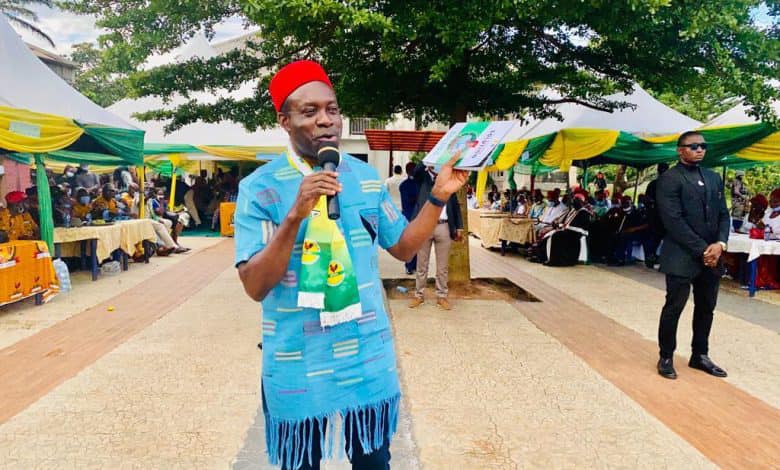It is about thirty days to the official kick-off of a new government in Anambra State. As is always the norm at this kind of political period — expectations and assumptions are already circling the state. Professor Chukwuma Soludo, the man who revolutionized Nigeria’s banking sector, is expected to occupy the Agụ Awka top seat for the next four years.
But it is not politics as usual. Millions of Ndi Anambra, both at home and in the diaspora, including political neutrals elsewhere are keenly awaiting a different pattern of governance in the state – something outside of the over-practiced tradition. In fact, it is already an informal street anthem in Anambra State that the erstwhile Central Bank of Nigeria’s henchman is earnestly waiting to begin his administrative sanitation.
The truth is that Professor Soludo has made huge pledges, many of which are reflected in his previous manifestos when he began his political journey in 2010. The Dubai-Taiwan mantra is still caressing the imagination of all Anambra people. Some say they expect magic from the renowned economist.
Others are just fine with his pre-inaugural body language. There are also doubters, who have written him off as just the usual Nigerian politician; their hyperbolic lifestyle and spurious intentions. Whichever believer is right, the over one hundred and twelve thousand voters on whose support Soludo rode to victory are convinced that they are standing behind the winning horse.
But Professor Soludo is a different political blend. Charlie Nwa Mgbaafor is unveiling his real political ideologies. The composition of his transition committee, made up of largely non-politicians, people from other political groups and states of origin, his hardline financial discipline, including an insistence that the budget for his inauguration be significantly slashed and, then, his reported turn-off at being addressed as ‘Your Excellency’, are clear footsteps that the Isuofia homeboy is not on a merry-go-round.
Critics and a few political spectators have dismissed these initial theatrics as the formulaic flash-in-the-pan tactics of most elite African politicians. After all, they insist, Nigeria’s current national leadership began with semi-similar dance steps, then went all the way down to acute failure. Only time and Professor Soludo are left to prove these suspicious minds wrong. But as the old axiom goes, he who has been stung by a bee is wary of the hovers of blowflies.
The sixty-one-year-old Pan-African is a student of unconventional politics; an ardent believer in what Jean-Marie Dru, a bestselling author describes as ‘creative disruption’. Such political pattern may have been alien to Anambra cum Nigeria’s partisan field, perhaps largely because it had never been fully and skillfully tested by any political office occupant.
‘Creative disruption’ is however an excitingly risky political model, if managed shambolically. And, in Nigerian politics, where most high-profile support comes with egoistic conditions, the model is bound to offend many power brokers. Hopefully, Professor Soludo knows that, and does his homework smartly.
Another noteworthy thing about the former university teacher is that he treasures discipline and rewards hard work. Often times he would talk about how much positives one can offer without prioritizing rewards. The smart professor speaks highly of his political principles, most notably his concerns about administrative porosity and wastefulness.
His fast-paced and intuitive work style means that he hires for productivity and brilliance, not out of compassion or affinity. And anyone chosen to work with him must be at home with his aversion for indolence and sycophancy. They must also be fit mentally and physically to match his work intensity.
Professor Soludo’s economic finesse and financial consciousness, interestingly, means that those who see politics as occupational fiesta must now look for jobs or face impending hunger.









Comments are closed for this post.